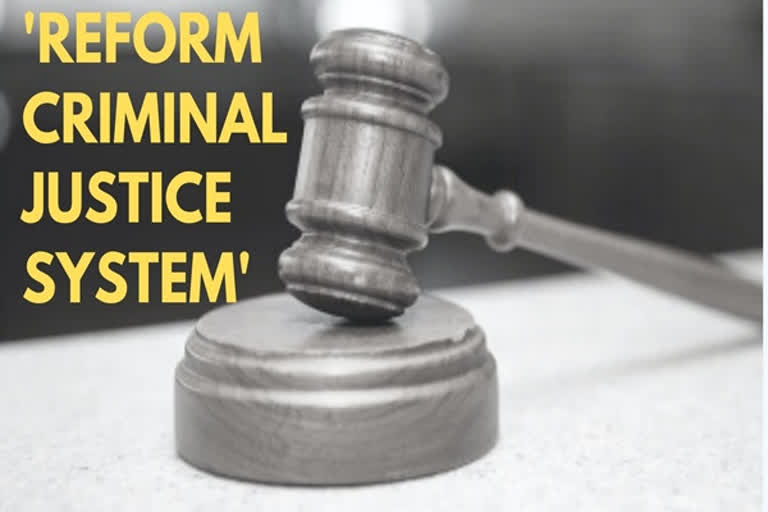Hyderabad: Of late, the country's criminal justice system seems to be out of reach of the wailing common man. Even as crores of citizens are seeking justice, the crime rate seems to be increasing multifold owing to the delay in bringing criminals to justice. This is giving culprits the courage to commit a crime without fear.
In an atrocious incident in Uttar Pradesh, the Unnao rape victim was doused with fuel and lit afire on the streets, proving once again that the Indian criminal justice system is not able to provide the victims with immediate justice.
Hence, the Union Home Ministry is proposing massive reforms in the Indian Penal Code (IPC) and the Code of Criminal Procedure (CrPC). Accordingly, the Centre is also calling for the opinion of the States and Union Territories with regards to the requisite changes that need to be made to the law proposed to be incorporated in the legislation.
The Ministry of Home Affairs further stated that this exercise will ensure that all people, especially the weaker sections, have access to law and immediate justice, in line with the modern democratic aspirations. Many analysts feel that the IPC sections drafted during 1860, and the Evidence Act of 1872 are failing to comply with the present requirements, owing to some loopholes, which are in fact enabling culprits to get off scot-free.
Attorney General Soli Sorabjee has, earlier, warned that delaying justice not only results in denying justice but also in the destruction of a proper judicial system. Considering this statement, Prime Ministers like Atal Bihari Vajpayee and Manmohan Singh, have indicated and stressed upon taking immediate corrective measures.
However, the declaration was unsuccessful to go beyond the formation of committees. For months, the Centre's efforts to tighten up criminal justice laws have received responses only from Karnataka, UP and the Union Territory of Jammu Kashmir. It is time that the Central and State governments come together and work towards bringing about security for peace and progress of the nation.
In 2016, NR Madhav Menon, who is known as the father of modern legal education, sadly opined that the criminal justice system, which aims at ensuring the safety of its citizens, is not working towards achieving the prescribed objectives.
Many intellectuals are apprehensive that the wide range of discretionary powers conferred on the police, and the prosecution is only helping the powerful to bring about corruption in the system, thereby leading to the destruction of the fundamental rights of innocent citizens.
In 2000, the Vajpayee government convened a special committee headed by Justice VS Malimath to bring about a remedial solution to this situation in the country. In April 2003, the committee submitted a key report, with 158 recommendations on bringing about coordination between the Judiciary, the police and other investigative agencies. The Justice Malimath Committee further insisted that it should be the guiding principle of ‘Search for Truth’ on which the entire judicial system should be based upon.
The NR Madhav Menon Committee also presented the National Policy Framework for four years, dividing it into four distinct codes to enable the effective management of the criminal justice system.
It is heartening to see big-time criminals securing bail and roaming scot-free in the society while petty criminals become scapegoats.
First world countries like the USA are progressing in the periodic reform of the criminal justice system from time to time, as is essential to legal governance – India ranks 68 among 128 countries in terms of the updated judiciary system.
The Madhav Menon Committee, which did not have adequate freedom to investigate corruption at the highest level, suggested that the national level law enforcement agency should be fully independent and only accountable to the court and no one else.
The Justice Malimath Committee recommended that the judicial magistrate be empowered to oversee criminal investigations, such as those in Germany and France.
With the Centre considering the implementation of the Malimath Committee's suggestions, it is important to hold deliberations on some of the controversial proposals, before legitimising it.
Improving the quality of investigation is as important as enhancing the security mechanism at the Centre and the state while validating long-standing criminal justice regulations and punishing offenders with the complete support of modern technology.
It is indisputable to say that the highest democracy of the world will be pushed into danger if the judiciary system is not refurbished at the earliest.



